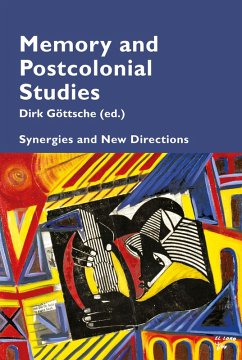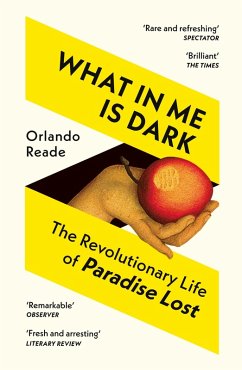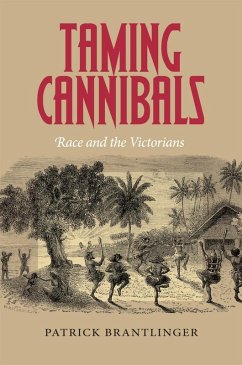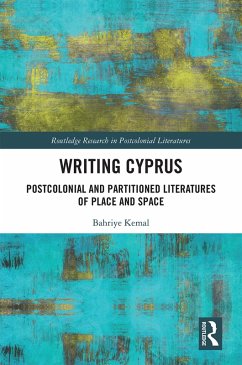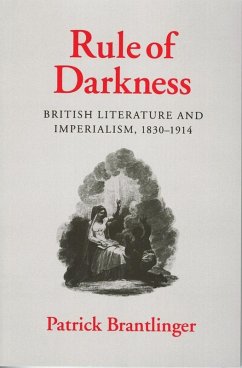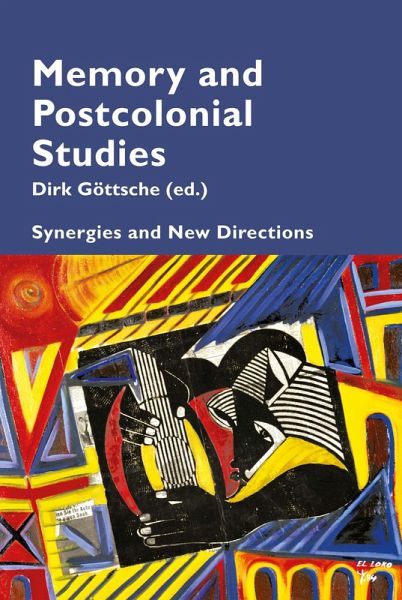
Memory and Postcolonial Studies (eBook, ePUB)
Synergies and New Directions
Versandkostenfrei!
Sofort per Download lieferbar
Statt: 103,95 €**
83,95 €
inkl. MwSt.
**Preis der gedruckten Ausgabe (Broschiertes Buch)
Alle Infos zum eBook verschenkenWeitere Ausgaben:

PAYBACK Punkte
42 °P sammeln!
In the postcolonial reassessment of history, the themes of colonialism, decolonisation and individual and collective memory have always been intertwined, but it is only recently that the transcultural turn in memory studies has enabled proper dialogue between memory studies and postcolonial studies. This volume explores the synergies and tensions between memory studies and postcolonial studies across literatures and media from Europe, Africa and the Americas, and intersections with Asia. It makes a unique contribution to this growing international and interdisciplinary field by considering an ...
In the postcolonial reassessment of history, the themes of colonialism, decolonisation and individual and collective memory have always been intertwined, but it is only recently that the transcultural turn in memory studies has enabled proper dialogue between memory studies and postcolonial studies. This volume explores the synergies and tensions between memory studies and postcolonial studies across literatures and media from Europe, Africa and the Americas, and intersections with Asia. It makes a unique contribution to this growing international and interdisciplinary field by considering an unprecedented range of languages and sources that promotes dialogue across comparative literature, English and American studies, media studies, history and art history, and modern languages (French, German, Greek, Portuguese, Russian, Serbian-Croatian, Spanish).
Combining theoretical discussion with innovative case studies, the chapters consider various postcolonial politics of memory (with a focus on Africa); diasporic, traumatic and «multidirectional memory» (M. Rothberg) in postcolonial perspective; performative and linguistic aspects of postcolonial memory; and transcultural memoryscapes ranging from the Black Atlantic to the Indian Ocean, from overseas colonialism to the intra-European legacies of Habsburg, Ottoman and Russian/Soviet imperialism. This far-reaching enquiry promotes comparative postcolonial studies as a means of creating more integrated frames of reference for research and teaching on the interface between memory and postcolonialism.
Combining theoretical discussion with innovative case studies, the chapters consider various postcolonial politics of memory (with a focus on Africa); diasporic, traumatic and «multidirectional memory» (M. Rothberg) in postcolonial perspective; performative and linguistic aspects of postcolonial memory; and transcultural memoryscapes ranging from the Black Atlantic to the Indian Ocean, from overseas colonialism to the intra-European legacies of Habsburg, Ottoman and Russian/Soviet imperialism. This far-reaching enquiry promotes comparative postcolonial studies as a means of creating more integrated frames of reference for research and teaching on the interface between memory and postcolonialism.
Dieser Download kann aus rechtlichen Gründen nur mit Rechnungsadresse in A, D ausgeliefert werden.




